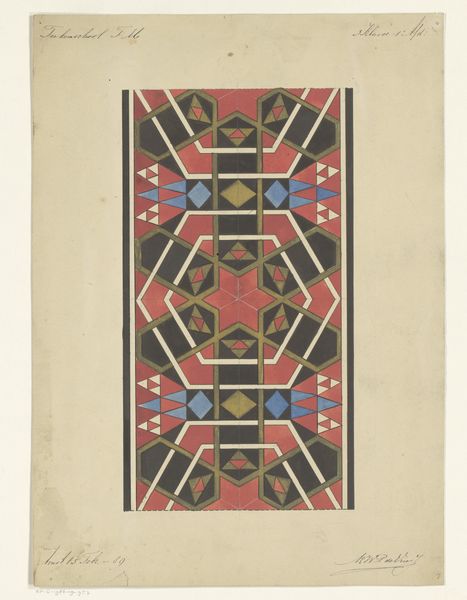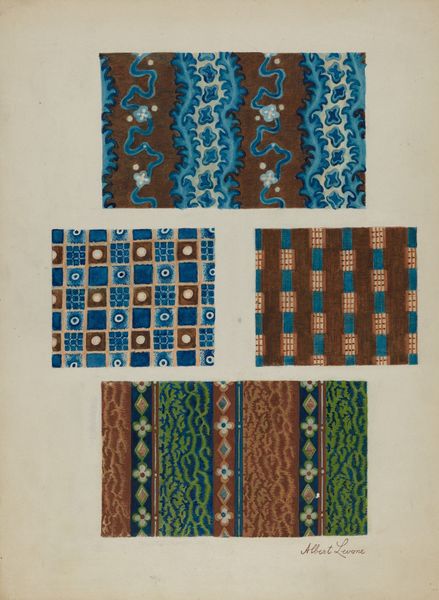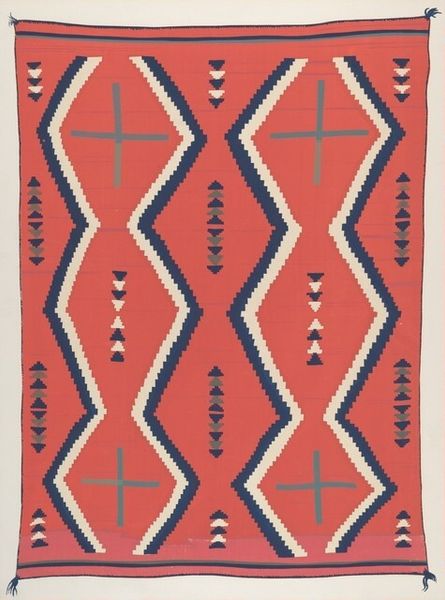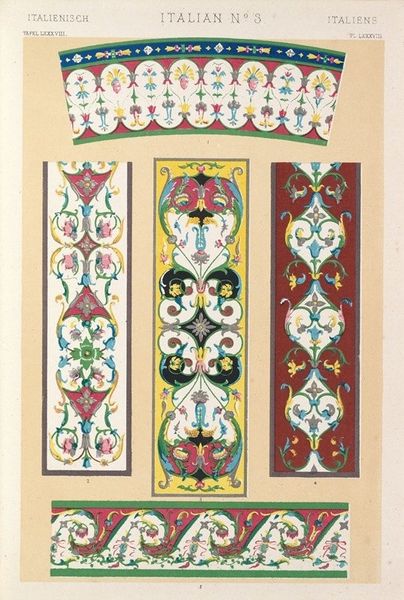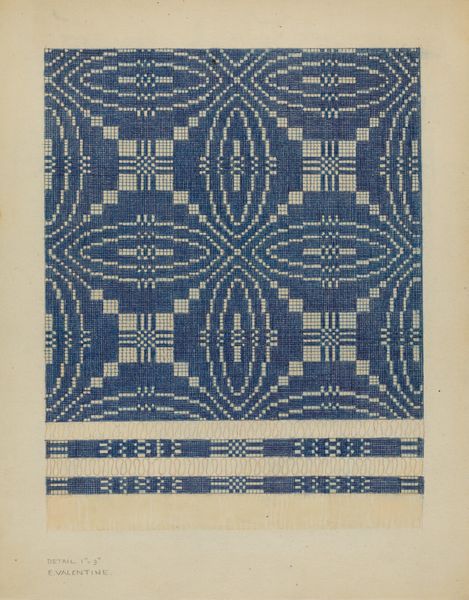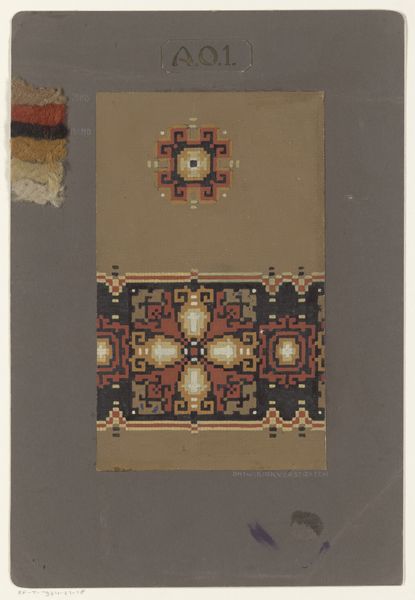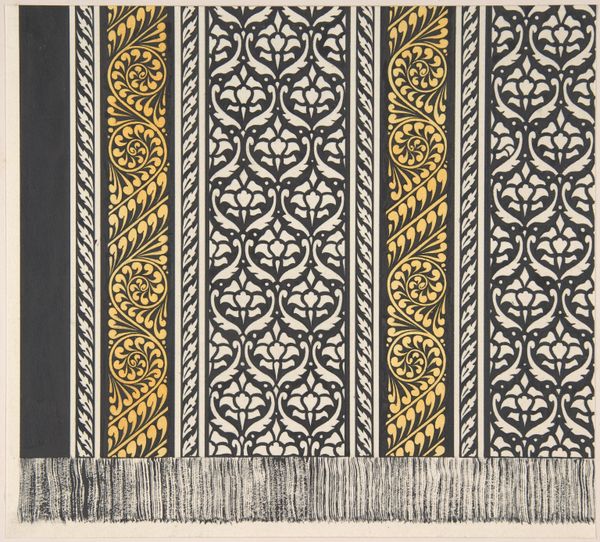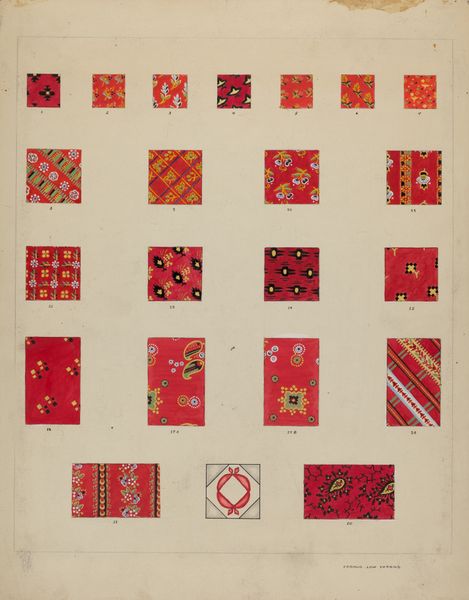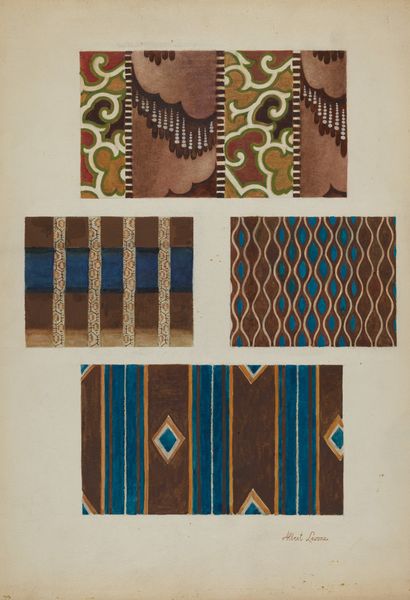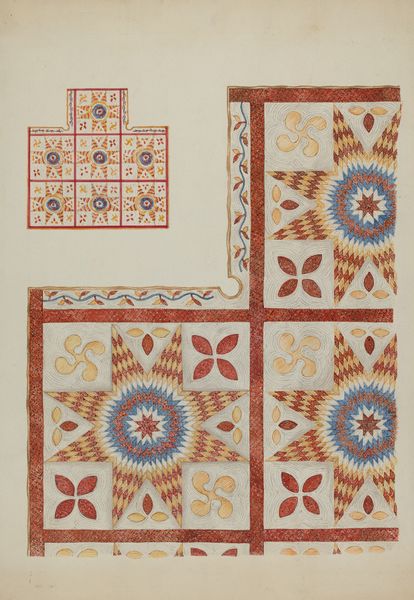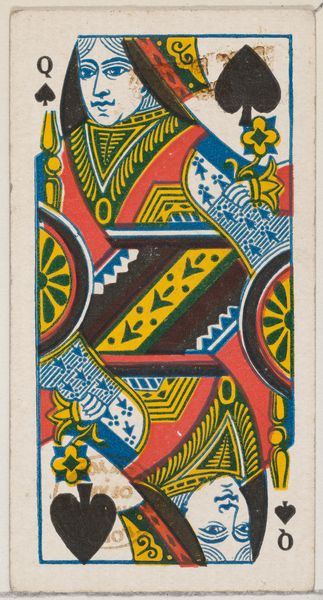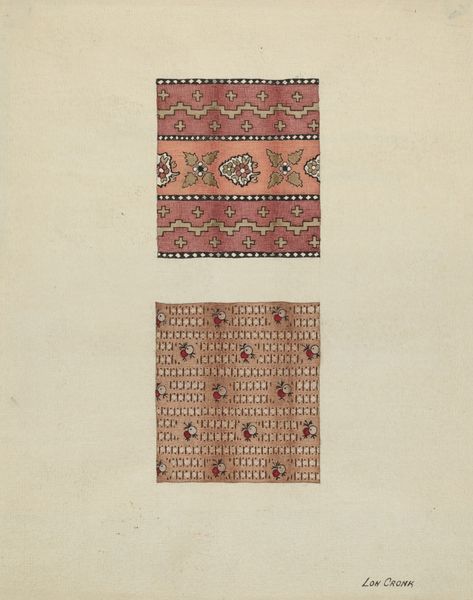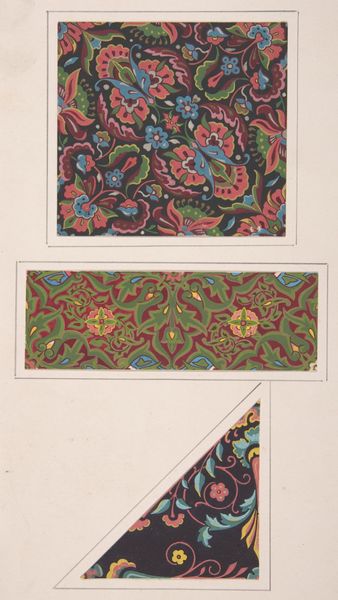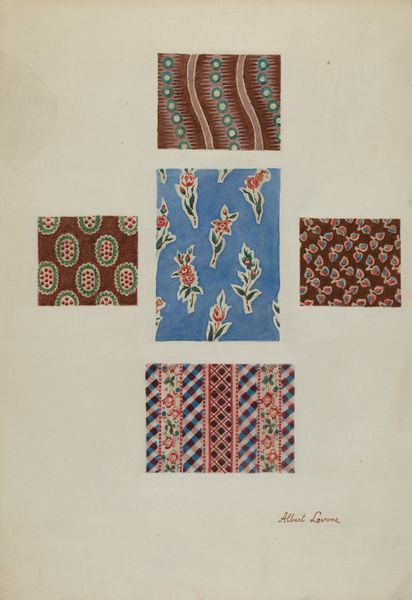
Vegetabile Muster in der Sultan-Hassan-Moschee in Kairo
0:00
0:00
drawing, ornament, paper
#
drawing
#
natural stone pattern
#
ornament
#
16_19th-century
#
decorative element
#
pattern
#
pop art
#
paper
#
german
#
geometric
#
repetition of pattern
#
pattern repetition
#
islamic-art
#
decorative-art
Copyright: Public Domain
Curator: What strikes me first is the interplay of colors; the gold and dark contrasts against a muted backdrop create a vibrant tension, almost a playful sort of elegance. Editor: We are looking at “Vegetabile Muster in der Sultan-Hassan-Moschee in Kairo,” or “Vegetable Pattern in the Sultan Hassan Mosque in Cairo.” This drawing by Friedrich Maximilian Hessemer, from the 19th century, captures the essence of Islamic decorative arts. Curator: Decorative indeed. The artist seems fascinated by the repetition of form. The rhythmic recurrence—evident in the carefully rendered vegetal motifs—demonstrates a deeper structural logic. The work also embodies something distinctly German about observing another culture through scientific eyes. Editor: I'd love to get lost in that structure; almost like wallpaper from a dream! Do you think the paper constrains the artistic expression, in other words, if Hessemer had another material to utilize do you believe the aesthetic qualities and geometric integrity would still emerge so vibrantly? Curator: Intriguing to consider materiality's role here. Paper allows for fine detail, linearity, which Hessemer masterfully exploits. Any different medium, the expression would shift; paper grounds these observations with precision and allows the lines to stay in unison. Editor: Agreed, the medium offers a unique voice here. And what of its emotional texture, the psychological implications of pattern and rhythm in our visual perception? It all kind of draws you in and maybe gives one some hope that order exists. Curator: Precisely! Semiotically, these repetitive shapes can be interpreted as signs pointing to the infinite and spiritual harmony. The pattern's logic soothes, offers refuge from chaos. The way that Islamic Art is used across architecture shows the infinite capacity for it to serve different communities. Editor: I now feel a strong connection between the art and architecture from which it came. It provides a wonderful lesson for us on balance, harmony, and an infinite appreciation for design. Curator: A potent encapsulation; Hessemer, through a meticulous study of Islamic ornamentation, unearths not just the beauty of pattern, but an embodiment of larger philosophical truths.
Comments
No comments
Be the first to comment and join the conversation on the ultimate creative platform.
